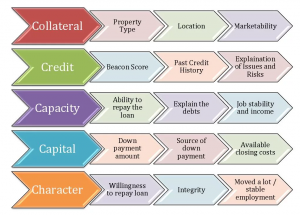Self-employed individuals are quickly becoming one of the most common clients that we handle. Daily we have successful business owners come into our offices who enjoy the perks of being an entrepreneur. One of these includes fantastic write-offs that allow them to bring their income down to a low tax bracket.
However, this benefit can also mean that the same business owner may have a hard time qualifying for a mortgage all because their income is significantly reduced on paper… how frustrating ‘eh? But these savvy business owners know that there is advanced planning that is involved in being able to qualify for conventional financing. Back in 2015, Statistics Canada reported that there were about 2.7 million people self-employed in Canada… which is an astounding 14% of the total population of Canada! What does that stat mean? Two things:
1. That being self-employed is a more than viable way of earning income in today’s world.
2. That 14% may not fit into the conventional lending “box”
The Conventional Lending Box
To fit into this box, self-employed individuals must meet certain qualifications. For example, they must be able to provide:
>Two most recent years of personal tax returns
>Two most current years Notice of Assessments
>Two most current years financial statements
>Statement of Bank Account Activity
>Investment Income Statement
>Photo ID
Now, the one area that raises a red flag in the above is the tax returns. As we previously mentioned, their income claimed on the return itself might be significantly different than their actual income. Tax deductions related to business often reflect meals, rental spaces, credit card interest etc. The result is that the income the self-employed business owner shows on their tax return is a significantly lower figure than what their actual take home pay is. However, the conventional lending box requires income to justify the mortgage. So how do we pull this off?
The Unconventional Lending Box
Now please keep in mind that “unconventional” in this box just means that as a self-employed individual, you are going to work with a Mortgage Broker to find an alternative to allow you to show that you can justify the mortgage. There are several well-known and consistently used pieces of advice that we would like to pass along to you:
1. If you are organized and planning (think 2 years out) you can plan to write off fewer expenses in the two years leading up to the property purchase. Yes, you will pay more personal taxes. However, your income will be higher, and it will be easier to qualify you for the mortgage amount you are seeking.
2. Set up your finances through a certified accountant. Many lenders want to see self-employed income submitted through a professional rather than doing it yourself. The truth is that the time you spend doing your own taxes will not be nearly as efficient both financially and time-wise as a professional. Make sure that you discuss with them what your goals are so that they can set up your taxes properly for you!
3. Choose your timing carefully. If you are leaving for an extended holiday within the two years before purchasing, your two-year average income may fluctuate. Plan your vacations and extended trips away with income in mind.
4. Consider using Stated Income. You have the option to state your income. This is based on you being in the same profession for 2+ years before being self-employed. The lender looks at the industry and researches the mean income of someone in that profession and with your experience. You will be required to provide additional documents such as bank statements, showing consistent deposits and other documentation may be asked of you to show your income.
5. Avoid Bankruptcy at all cost…. or if you do declare bankruptcy have all your discharge papers on hand to present to the lender and ensure you have two years of re-established your credit.
6. Mortgage Brokers can state income with lenders at the best discounted rates. But if you do not qualify with A lenders using stated income, then a broker will work with you to utilize a B Lender who are more lenient but may come with higher interest rates and applicable lending and broker fees.
7. Last but not least, if A or B lenders don’t fit, private financing can be looked at as an alternative option in order to get you into the market and offer a short-term solution to improve credit or top up your reporting income. Then you and your broker can refinance into an A or B lender at that time. Just keep in mind that private lending will have a higher rate associated with it , with lender and broker fees added on as well, if you choose to go with this option.
So, to all of our self-employed, hard-working, determined individuals, take heart! You can qualify for the mortgage you want, it just takes a little more planning to get everything in order. Keep in mind to that every lender has different guidelines as to how they view self-employment. Working with The Angela Calla Mortgage Team leading up to your property purchase can help you ensure you get the mortgage you want.
-Geoff Lee
Angela Calla is a 14 year award-winning woman of influence mortgage expert. Alongside her team, passionately assisting mortgage holders get the best mortgage, and educating them on The Mortgage Show on CKNW for over a decade and through her best-selling book The Mortgage Code available on Amazon. To purchase the book click here: The Mortgage Code. Proceeds from a sales will help build a new emergency room at Eagle Ridge Hospital. Angela can be reached at callateam@dominionlending.ca or 604-802-3983.


